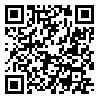Volume 13, Issue 3 (9-2021)
2021, 13(3): 58-67 |
Back to browse issues page
1- Department of Computer Engineering, Science and Research Branch Islamic Azad University Tehran, Iran
2- Department of Energy Engineering and Physics, Medical Radiation Engineering Group Amirkabir University of Technology Tehran, Iran. , setayesh@aut.ac.ir
2- Department of Energy Engineering and Physics, Medical Radiation Engineering Group Amirkabir University of Technology Tehran, Iran. , setayesh@aut.ac.ir
Abstract: (1305 Views)
We proposed a model of learning and belief formation in which a group of agents tries to learn the true underlying state of the world and make the best possible decisions. Agents with limited computational ability, in addition to receiving noisy private signals, observe the decisions of their neighbors. It is well known that Bayesian inference is very complex in social observations, especially when agents are unaware of the structure of the social network. In our model, the role of knowledge derived from the social observations of each agent is separated from that’s of her private observations in the formation of her belief. Thus, to reduce the complexity of Bayesian inference, the processing of social observations is approximated using the inferential naivety assumption. With this assumption, agents naively believe that each neighbor's decisions are based solely on his or her private observations and that their social interactions are ignored. Another important initiative in the proposed model is to eliminate herd behavior by introducing an exponential bias and reducing the weight of early social observations compared to recent observations. A number of Monte Carlo simulation experiments confirm the features of the proposed model. This includes asymptotic learning of all agents and increased learning efficiency in social networks.
Keywords: Group decsion making, Bayesian method, Heuristic method, Inferential naivety, Rational decision making, Social learning model.
Subject:
Information Technology
| Rights and permissions | |
 | This work is licensed under a Creative Commons Attribution-NonCommercial 4.0 International License. |



